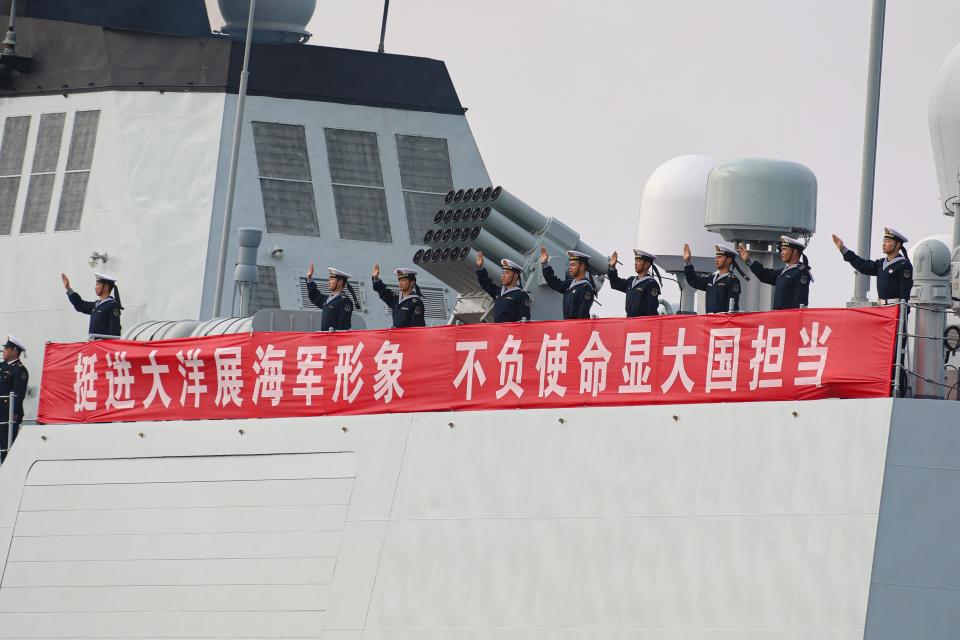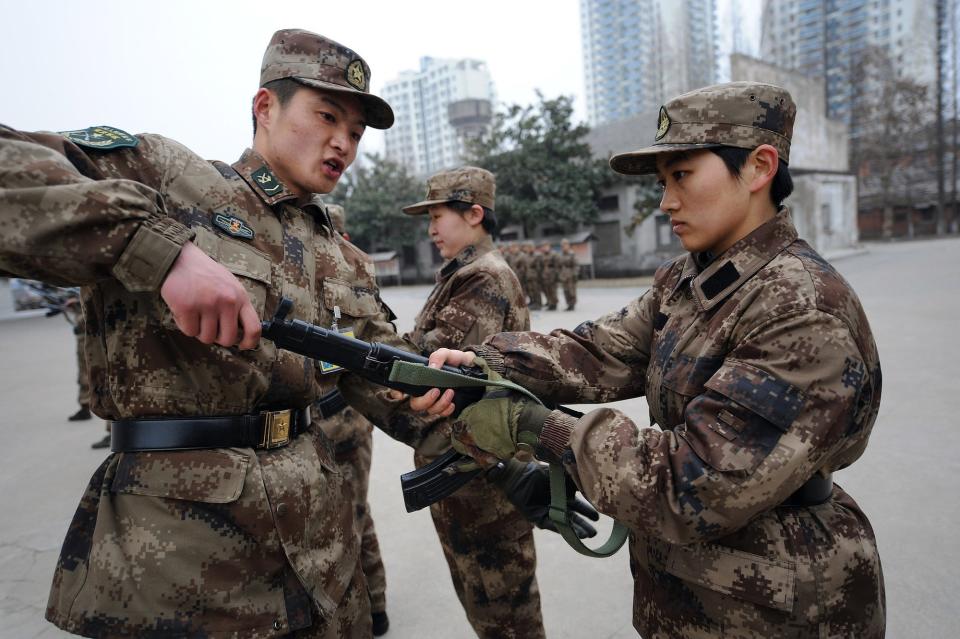Problems in China have US intelligence worried the rising military power may become 'even more aggressive and unpredictable'

China may act "even more" aggressively and unpredictably thanks to its domestic problems, US intel said.
China's demographic issues, as well as economic challenges, put its leadership and military in difficult positions.
US intel suggested China's global leadership and military ambitions are meeting resistance.
As China grapples with mounting domestic challenges, its already concerning behavior on the world stage may become even more aggressive and unpredictable, according to US intelligence.
That shift could come as leader Xi Jinping attempts to undermine US influence, as well as prevent challenges to China's reputation and military might.
In the recently released 2024 Annual Threat Assessment from the US Intelligence Community, the Office of the Director of National Intelligence argued that China continues to have "the capacity to directly compete with the United States and US allies and to alter the rules-based global order in ways that support Beijing's power and form of governance over the United States."
That "capacity" comes, at least in part, from China's rapidly growing military, developments for which were documented most recently in last fall's China Military Power Report published by the Pentagon, as well as its global economic influence.

But at home, things don't seem too rosy for China, as it struggles with domestic issues like a stalling economy and population problems. That may prompt erratic behavior. "China's serious demographic and economic challenges may make it an even more aggressive and unpredictable global actor," the threat assessment said.
As is, China continues to expand its global intelligence reach, increasing cyber and surveillance capabilities to both spy and spread disinformation.
China has also increased the pressure on Taiwan, and there continue to be concerns it will invade the island democracy. Beijing has stated outright that the use of force is an option to achieve unification.
Taiwan's elections earlier this year, which led to the pro-Taiwan independence Democratic Progressive Party's historic third consecutive term in power, have been an irritant for Beijing. The reaction come Inauguration Day in May may shed light on the direction of cross-strait relations between Taiwan and mainland China for the foreseeable future.
Chinese military exercises have also raised tensions around Taiwan and in the South and East China Seas.
China has aggressively engaged US forces in the skies above the South and East China Seas, conducting unsafe intercepts of aircraft. The Pentagon has repeatedly called out these intercepts, criticizing China for its behavior, and has also released a footage of many of these incidents.
And China continues to harass Philippine fishing vessels in disputed waters, sparking tensions over the last few months. Chinese aggression hasn't necessarily worked in its favor though.
"PRC [People's Republic of China] leaders' regional and global ambitions are also hampered by growing resistance to China's heavy-handed and coercive economic, diplomatic, and military tactics towards Taiwan and other countries," the report said.

Part of China's challenges, the US assessment said, come from the prioritization of security and stability for the Chinese Communist Party by the leadership. That effort is "undermining China's ability to solve complex domestic problems and will impede achieving the CCP's goal of becoming a major power on the world stage," the new intel report said.
The country's domestic problems are multi-faceted. China's growing national security focus has led to tighter restrictions, and its economy suffered from COVID-19 restrictions, and it has not clearly recovered.
Its economy will continue to slow, US intelligence said, partially "because of structural barriers and Beijing's unwillingness to take aggressive stimulus measures to boost economic growth." Birth rates continue to decline, as are marriage rates, despite an easing of restrictions.
Xi's widespread anti-corruption campaign within the government and military, too, could be adding to these issues, exposing deep-rooted and long-standing problems as he looks to secure CCP control over the military. That's been most clearly seen in China's Rocket Force, which recently saw a high-profile reshuffling of top officials and accusations of widespread graft.
Other restrictive measures on religion and dissent in China, as well as accusations of human rights abuses, have inspired global criticism and hurt China's reputation on the world stage, the US assessment added.
Read the original article on Business Insider

 Yahoo Finance
Yahoo Finance 